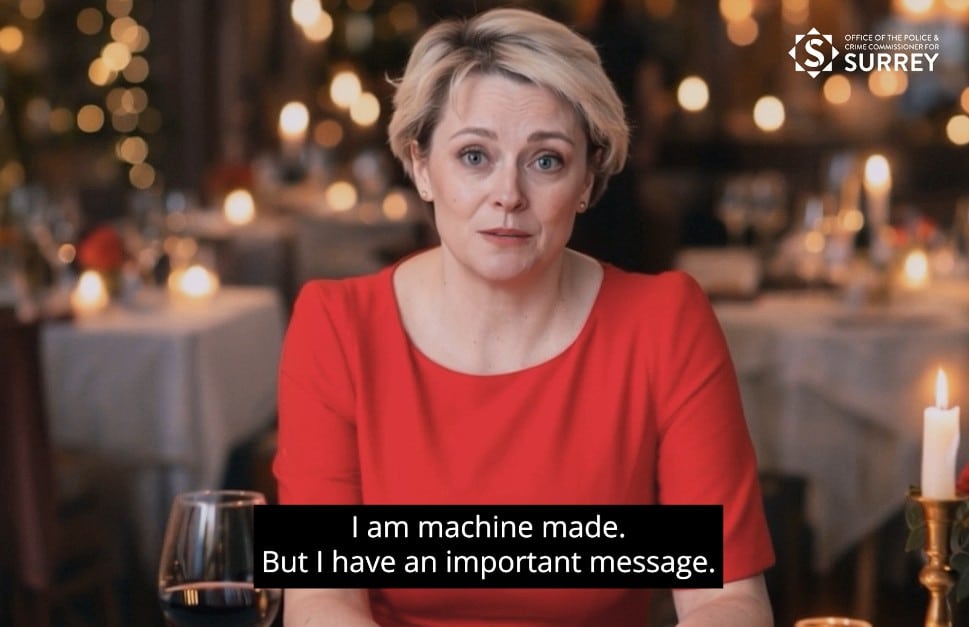It is the Police and Crime Commissioner’s responsibility to set the level of council tax you pay towards policing, known as the precept.
This page provides more information on the Commissioner’s council tax survey and answers some the frequently asked questions around the precept setting process.
Q.) How much of my council tax goes towards policing in Surrey?
The cost of policing is just part of the council tax bill (or precept) you receive each year for local services. Your bill will include charges for Surrey County Council – with an adult social care levy, your District Council and possibly your local Town and Parish Councils (if you have one) as well as the Surrey PCC for policing.
On average 14% of your total council tax bill goes to pay for Policing. In total Surrey residents contribute 55% of the total cost of the Police through their Council Tax with the remaining 45% being provided by central Government as a grant. Surrey Police receives the lowest level of Government grant in England.
Q.) How is the public consultation carried out? What happens when it is completed?
The Commissioner consults on the level of council tax that is set for the new financial year by holding in depth conversations with the Chief Constable and other senior leaders of Surrey Police, talking with key stakeholders and making a survey available to members of the public.
An online survey is used to gather the views of the public on options for the increase to the council tax in the coming year.
It also invites comments that are read by the Commissioner to inform the proposal that they are required to present to Surrey’s Police and Crime Panel budget meeting in February.
While the public survey is not a vote that directly decides the level of council tax set in the Commissioner’s proposal, your views are important as they provide an estimation of the support for different levels of council tax increase and provide feedback to Surrey Police and our office on the service that you expect from the Force.
Once the survey is complete, the Commissioner reviews all information to present a proposal for the Surrey Police and Office of the Police and Crime Commissioner’s budgets for the coming financial year.
Under the Police Reform and Social Responsibility Act 2011, Surrey’s Police & Crime Panel are asked to consider the proposal and make any recommendations.
If the Panel does not accept the proposed precept, it can be vetoed (declined) by a majority of two thirds of the Panel members present. If this happens, the Commissioner must produce a revised Precept Proposal and an additional meeting is held for the Panel to consider it. The Panel does not have a power to veto the revised Proposal.
The proposed amount of police precept from your council tax will then be included in your council tax bill for the financial year.
A council tax survey report and council tax leaflet are produced by our Office to provide the public with information on the survey outcomes, the Commissioner’s decision on council tax and how their money will be used by Surrey Police.
Q.) How much will people in different council tax bands pay depending on the PCC’s final decision?
When this page was first published at the time the survey went live, the Commissioner was awaiting the settlement from Government. It was anticipated at that time that PCCs would be given the ability to increase their Band D Council Tax for policing by a maximum of £14 a year or above.
The Government then published the settlement, which instead gave PCCs the ability to increase council tax by a maximum of £15 for a Band D property.
The table below sets out the maximum amount that you may have to pay for policing in Surrey for 2026/27. The final increase will depend on the Proposal that the Commissioner makes to the Police and Crime Panel in February:
Annual council tax amounts for 2026/27 based on a £15 increase for an average Band D property (£1.16 a month):
| Band A | Band B | Band C | Band D | |
| Est. total | £235.05 | £274.23 | £313.40 | £352.57 |
| Est. increase from 2025/26 | £10.00 | £11.67 | £13.33 | £15.00 |
| Band E | Band F | Band G | Band H | |
| Est. total | £430.92 | £509.27 | £587.62 | £705.14 |
| Est. increase from 2025/26 | £18.33 | £21.66 | £25.00 | £30.00 |
Q.) How much of my council tax goes to the Police and Crime Commissioner’s Office?
In 2025/26 out of a total budget of £329m the PCC retained £3.7m for her Governance and Commissioning responsibilities with the remaining 98.9% being passed on to Surrey Police.
More than half of the budget for the PCC’s office is used to provide funding to local services that promote community safety, help victims and reduce reoffending.
In 2025/26,we will provide almost £5.8m to local services of which £4.2m was secured from Government through specific grants with the remainder coming from general grant and council tax. This paid for bespoke community safety projects, tackling antisocial behaviour, addressing serious violence and supporting victims of sexual violence, stalking and domestic abuse.
Q.) How much does the Police and Crime Commissioner get paid?
The PCC’s salary has been set by the Government at £73,300 pa. The Deputy Commissioner’s salary is set at 80 per cent of this, equal to £58,640 pa.
Q.) How much money is Surrey Police saving?
Surrey Police has saved over £80m over the last 12 years and had a target of £3.6m for 2025/26. Given the level of past savings achieved this has proved to be particularly challenging and so far only £1.5m has been achieved.
Whilst work is ongoing to try and save the remainder it is likely that any savings not achieved will have to be carried forward to 2026/27 forming part of the estimated £18m required to 2030.
Q.) What would happen if there was no increase in the precept?
It is the Commissioner’s responsibility to set a level of precept that is appropriate to support the service provided by your police.
As with other services, inflation is an important factor in how far the police budget goes towards paying for things like fuel and energy. If inflation is high, it means the value of an item or service is likely to be above the usual amount of money that was previously set aside for that purpose. To put this into context a 1% increase in pay costs the Force about £2.3m equivalent to almost £5 on council tax.
It is possible to have a lower council tax or even not increase it at all but this would mean that more savings would be need to be found to pay for the increased costs of pay and inflation leading to, potentially, an adverse impact on services provided.
Surrey Police estimate that for every £1 reduction in council tax, 12 staff would have to be lost/not replaced in order to balance the books. These are staff that perform vital roles in areas such as contact and investigations supporting their uniformed colleagues.
Furthermore, if the opportunity to increase council tax is not taken in the current year, it is not possible to “catch up” in the following year by having a larger increase. This means that the impact of decisions taken now can have long term financial implications for the Force.
Q.) How much has Surrey Police got in reserves? Why can’t it be used to fund local policing?
Most organisations, companies and indeed individuals will try and hold some money in reserve – like a savings account – to deal with unexpected costs, emergencies and to save up for a big investment.
Surrey Police is no different and as of March 31 2025, it holds approximately £38m in reserves, which is 11% of the annual budget. The total held is less than the average for police forces nationally and significantly lower than many Borough and District Councils who typically hold significantly more of their annual budget in reserve.
Of the total reserves £27m has been set aside for specific purposes such as major development work, Insurance losses, ill health retirements, investment in innovation etc. The remaining £10m, equivalent to less than two weeks expenditure, is held as a general reserve. This is used to meet unexpected costs arising from say a major incident, such as the major disorder, a big investigation or maybe a terrorist attack. These incidents require large amounts of money to be spent quickly outside of the normal budget without any guarantee that these would be reimbursed by the Government later on.
Reserves may also be needed to temporarily balance the budget if the Force is not able to achieve the savings it needs to as quickly as it would like.
Of course, the Force could use its reserves on day-to-day spending to support a lower council tax increase, just as an individual can spend all their savings to meet rising costs. However, like personal savings, reserves can only be spent once and therefore their use for this only delays the implementation of cuts that would be required to enable the budget to be balanced and financially sustainable for the future.
Q.) How can I find out more?
Please contact our office to learn more. If you don’t want to send a message, you can call us on 01483 630200.
Latest News
Police and Crime Commissioner creates another deepfake video to raise awareness of romance fraud

"Don't let criminals break your heart emotionally and break you financially." This is the warning from Police and Crime Commissioner, Lisa Townsend, in the run up to Valentine's Day this weekend.
Police teams will be resourced to take the fight to criminals, says Commissioner as council tax rise approved

The Commissioner's proposal for the precept, the part of council tax that goes towards policing, has been approved this afternoon.
PCC urges public to Question EVERYTHING after Surrey victim loses £20,000 of life savings through deepfake video

A Surrey resident has lost £20,000 after he was tricked into a scam investment by a deepfake video of TV star ‘Martin Lewis’.